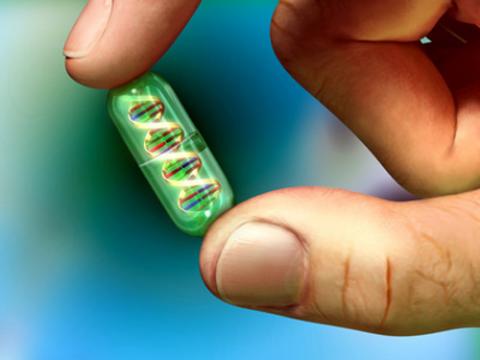
Dr. Schook attended the conference and participated in a patient and public symposium, featuring expert talks and exhibits in pharmacogenomics, ethics, microbiome, cancer, and other areas where precision medicine is impacting health care.
Mayo Clinic Vice President Gianrico Farrugia, M.D., gave the opening keynote at the conference. The core of his talk highlighted five areas in which the knowledge and know-how from the human genome will be most impactful in patient care, not just at Mayo Clinic, but anywhere in the nation and globally. According to Dr. Farrugia, physicians can take advantage of advances in individualized or precision medicine to better diagnose, treat or prevent illness. Here is his short list of "value adds" to the practice of medicine that were shared:
Preventing drug-related adverse affects
Pharmacogenomics -- prescribing medications based on a person's genomic information -- is helping physicians avoid harmful reactions. As Mayo has embedded its available patients' genomic information in the electronic health record, more than 3500 adverse reactions have been prevented in the last two years.
Microbiome markers to predict disease susceptibility and outcomes
The microbes in your gut and elsewhere in and on your body can tell physicians if you are at greater risk for some diseases and indicate how well you'll recover from them. They can also be used to treat disease.
Whole exome sequencing for undiagnosed diseases
By sequencing the core elements of the genome, physicians can offer some patients a diagnosis after years of questions and ineffective treatments.
"Liquid biopsies": Cancer mutation/biomarker testing for diagnosis and prognosis
We are rapidly getting to the point where we can use sequencing of cell-free DNA in body fluids to diagnosis and follow cancers without needing tissue from the cancer itself.
Noninvasive prenatal testing
Cell DNA testing is now available for a variety of genetic alterations during pregnancy.
More information on the conference is available here.
